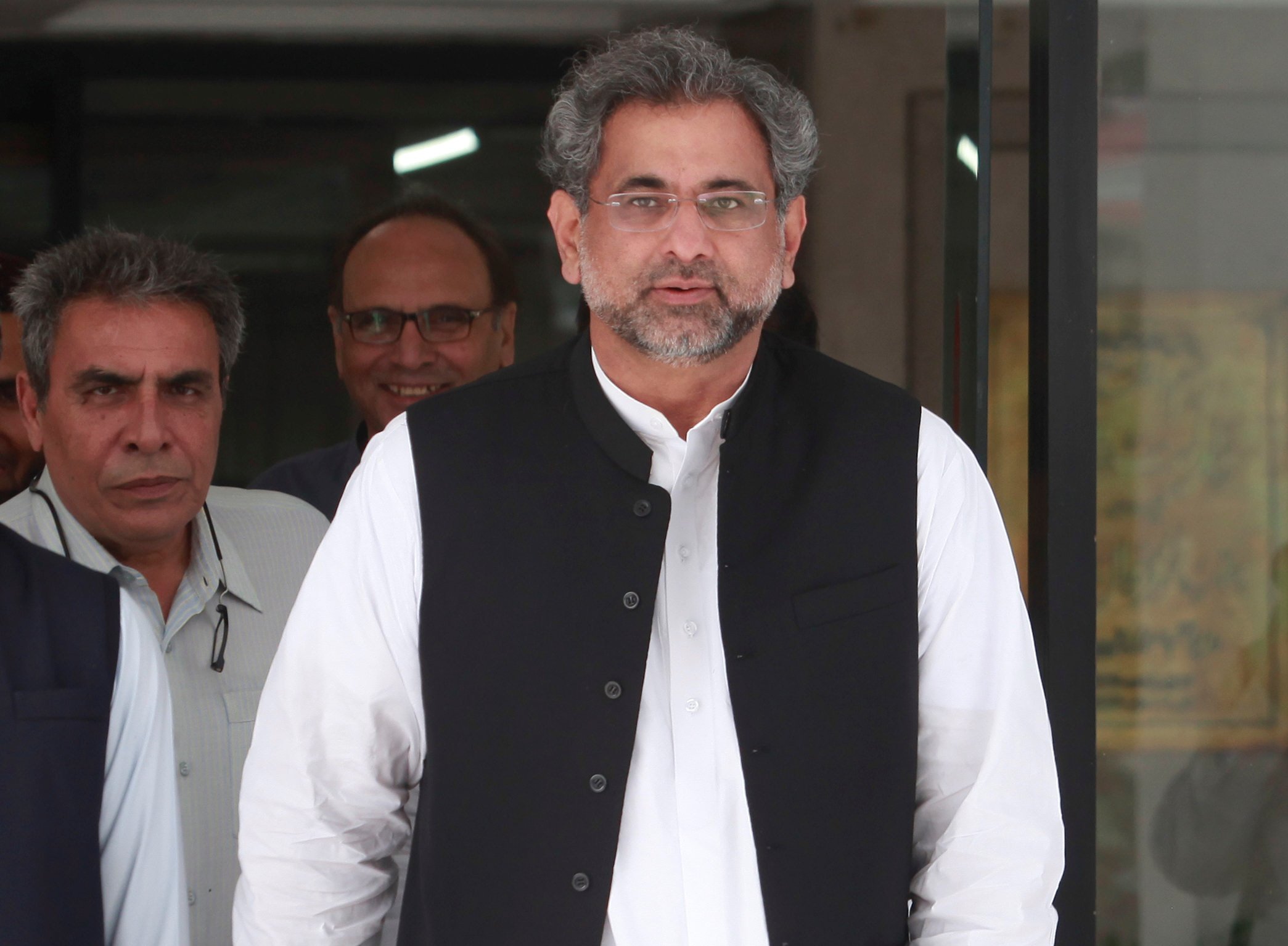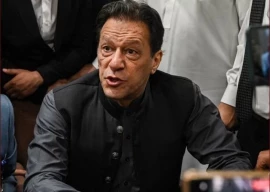
But this seems to be happening now. Prime Minister Shahid Khaqan Abbasi is making his presence felt since assuming office on August 1.
The change of command at the top level has caused a visible shift in the pattern of governance – from being apparently passive to proactive.
Abbasi at the helm
Abbasi is holding marathon meetings these days to get familiar with the issues related to governance. From chairing early morning huddles of his kitchen cabinet to late night meetings with government officials, party lawmakers and supporters, Abbasi is acquiring the role of an assertive and authoritative PM.
Those assigned important responsibilities in the federal government realise a visible change in the style of governance adopted by Abbasi as against Sharif, his predecessor.
Unlike Sharif, who followed a ‘go easy’ approach in dealing with official and political matters, Abbasi seems to have adopted a proactive and aggressive approach.
Reportedly, the government officials, including powerful ministers and bureaucrats, are called at the PM Office for regular briefings on official matters and are critically questioned about their performance and functioning of their respective departments.
PM Abbasi constitutes seven new ministries
Three major steps taken by Abbasi have helped him wield sizeable influence in running the government. These include taming the powerful bureaucracy, cutting the influential federal ministers to size and setting up new federal ministries.
Reports from the ruling camp suggest that the PM has virtually clipped the exceeding powers of top bureaucrats, including none other than PM’s Secretary Fawad Hassan Fawad. In the recent past, Fawad used to have an important say in the transfers, postings and promotions of senior bureaucrats. With Abbasi putting his foot down, Fawad is no more enjoying the leverage that he would during the Sharif’s tenure.
Secondly, Abbasi’s decision to remove Finance Minister Ishaq Dar as chairman of the Economic Coordination Committee (ECC), the Executive Committee of National Economic Council (ECNEC) and the Cabinet Committee on Privatisation (CCOP), and take their control himself has sent a strong message across. In what adds insult to the injury, Dar has been removed from CCOP’s membership also.
In another sign of the exercise of authority, Abbasi set up seven new ministries viz, Energy, Water Resources, Postal Services, Commerce and Textiles, Statistics, Privatisation and Narcotics Control shortly after assuming power.
Reconstitution: PM Abbasi to head ECC himself as Dar edged out
One of the senior PML-N leaders, requesting anonymity, said it would be too early to assume that governance standards have improved.
“So far so good, but whether this trend continues remains to be seen,” the insider said. “We have seen this in the past as well — there’s a lot of activity when someone assumes an important position but then gradually things slow down and go back to square one.”
Defending the ousted PM, the leader said, “You can’t say that Nawaz Sharif had a take-it-easy kind of approach towards governance. Being a third-time PM, Nawaz was much more confident and comfortably placed. Given his political clout and stature, he took the things in stride compared to his successor.”
One of the present challenges Abbasi faces ahead of Eid comes from non-payment of three-month salaries to as many as 632 officials of the Passport Office deputed across Pakistan. In addition, hundreds of Passport Office personnel posted at more than 100 diplomatic missions across the globe have been paid only four-month salaries and five-month house rent in over 18 months.
According to a source at the PM Office, Abbasi is set to take to task incumbent Director General Passports and Immigration Usman Akhtar Bajwa for negligence in this regard.
Political analyst and former secretary Election Commission of Pakistan (ECP) Kanwar Dilshad said the new PM “needs to adopt an inclusive and consultative approach” towards important matters, state institutions and legislative organs, including parliament, judiciary, security establishment and foreign policy.
“PM Abbasi must not make the mistakes his predecessor made by ignoring parliament and developing confrontation with the security establishment and the judiciary. He also needs to adopt an independent view free of dictation from Jati Umra on foreign policy matters. Good to see a strong stance taken by Pakistan during existing tiff with the US on Donald Trump’s new Afghan policy. This needs to continue,” he told The Express Tribune.






1724319076-0/Untitled-design-(5)1724319076-0-270x192.webp)


1726732405-0/Express-Tribune-Web-(15)1726732405-0-270x192.webp)

1735025557-0/Untitled-(96)1735025557-0-270x192.webp)











COMMENTS (1)
Comments are moderated and generally will be posted if they are on-topic and not abusive.
For more information, please see our Comments FAQ